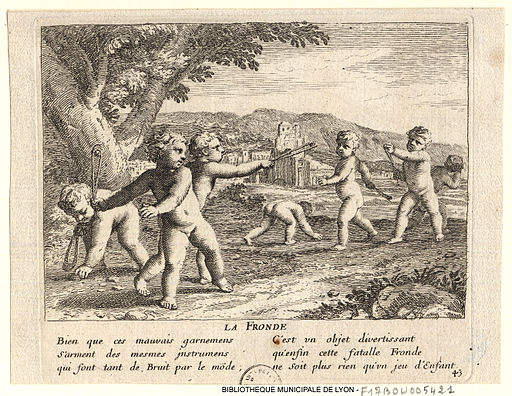Mazarinades
This article details the continuing efforts of the Folger Shakespeare Library to catalog and create finding aids for their Mazarinades collection, as well as describes the pamphlets and their historical context. The content of this article derives from work completed by Nadia Pazolis-Gabriel, Kathryn Gucer, Daniel Yabut and Goran Proot.
The Folger's caché of Mazarinades
In 1648, when Louis XIV was about ten years old and France was effectively ruled by his chief advisor, Cardinal Jules Mazarin, a series of civil wars broke out in France called the Fronde. From 1649 to 1653, thousands of satirical and burlesque political pamphlets called Mazarinades were published, criticizing Mazarin. The Mazarinades were sold at bookstalls along Pont Neuf and Parisian bookshops. This explosion of print was unprecedented in France.
In 1954 the Folger began collecting these pamphlets and has since amassed the largest Mazarinades collection on the North American continent, with 2,650 unique editions of the estimated 6,000 to 7,000 published. On the 70th anniversary of our first acquisition of 1,113 Mazarinades, we are pleased to announce that on Folgerpedia, you will soon be able to access our entire Mazarinades collection online, complete with full-text images, physical descriptions, and bibliographical fingerprints and details.
The Folger Mazarinades Project
The word fronde means "sling", which Parisian mobs reportedly used to smash the windows of Mazarin’s supporters when the rebellion broke out in 1648. These rebels came to be known as frondeurs, a term for schoolboys who used slings when the teacher wasn’t looking. Ultimately, the frondeurs took pen to paper and produced the Mazarinades, after the title of Paul Scarron’s famous satire, La Mazarinade (1651).
The Folger holds 2,650 editions among its 3,237 copies. Yet, despite their research value the Mazarinades have not yet been systematically entered in the Folger’s online catalog, Hamnet. Instead, to access the collection readers have to consult the Acquisition Office copies of the four nineteenth-century bibliographies by Celestin Moreau, Ernest Labadie, and Emile Socard, where the Folger's holdings are checked off by pencil. In recent years, new Mazarinades acquisitions have been described in Hamnet, but these represent only a small fraction of the Folger holdings.
The goal of this project is to provide an online finding aid for the Folger Mazarinades collection. Visit Folgerpedia and The Collation for project updates and related articles in the coming months.
